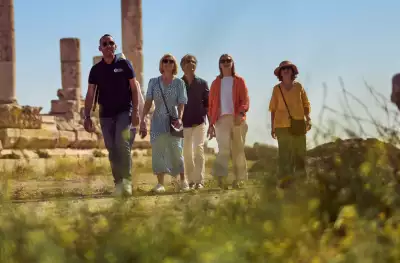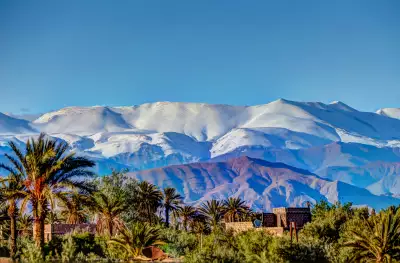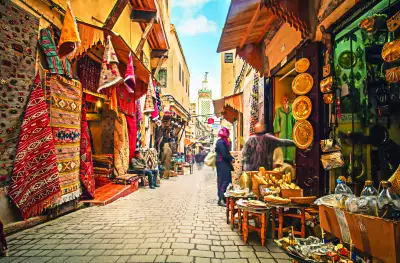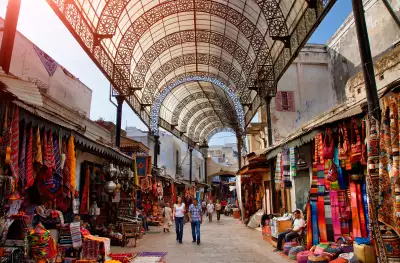10 Things You Should Know Before You Visit Morocco
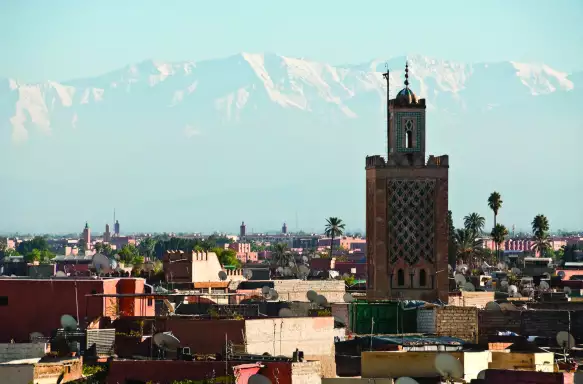
Morocco is a land of dazzling diversity; where sweeping deserts meet rugged mountains, and bustling souks contrast serene coastal towns. It’s a sensory feast of vivid colours, rich scents, and hypnotic sounds. Whether you’re wandering the winding medinas of Marrakech or admiring the golden dunes of the Sahara, Morocco promises adventure at every turn. However, to truly make the most of your visit, a little preparation goes a long way.
For first-time visitors, Morocco can be both enchanting and overwhelming. From the striking landscapes of the Atlas Mountains to the Atlantic’s refreshing coastlines, there is an undeniable allure to this North African gem. Its rich history, which intertwines Berber, Arab, and French influences, creates a cultural tapestry unlike any other. Bustling cities like Marrakech and Fes present a whirlwind of vibrant souks, exquisite architecture, and culinary delights, while quieter destinations such as Chefchaouen offer a serene retreat painted in cool shades of blue.
However, Morocco’s beauty also comes with complexities. Cultural differences, varied languages, and unique social etiquette can make navigating this enchanting country feel like stepping into a different world. Before you go, it’s worth arming yourself with some essential knowledge to ensure a smoother, more enjoyable experience. Whether you plan to ride camels through the Sahara, sip mint tea in a traditional riad, or lose yourself in the maze-like medinas, understanding a few key aspects of Moroccan life will greatly enhance your journey. Here are ten essential things you should know before you embark on your Moroccan adventure.
1. What to wear in Morocco
Morocco is a predominantly Muslim country, and while the dress code is relatively relaxed for tourists, it’s respectful to dress modestly, particularly outside of tourist-heavy areas.
It's worth noting that Morocco’s fashion scene is growing, especially in cities like Marrakech and Casablanca, where contemporary styles are blended with traditional attire. Still, dressing with awareness of cultural expectations shows respect and can lead to more positive interactions with locals.
For more information, read our blog How to Dress When Visiting Morocco.
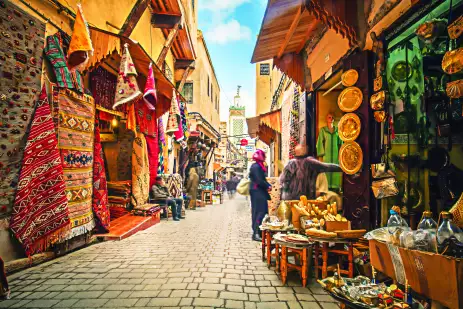
2. How to bargain in Moroccan souks
In Morocco’s lively souks, bargaining is expected. From the winding alleys of Marrakech’s Medina to the artisan shops of Fes, haggling is a skill worth honing. Sellers often quote inflated prices, assuming travellers will negotiate. Start by offering half of the initial asking price and work your way up to compromise. Smile, be polite, and enjoy the process: it’s all part of the cultural exchange.
Taking your time is key; don’t feel rushed into making a purchase. The longer the negotiation, the more you’re likely to reach a fair deal. Some travellers even find haggling to be a highlight of their experience, enjoying the playful exchange of offers and counteroffers.
3. Using money in Morocco
While Morocco is gradually embracing card payments, cash remains the most widely accepted form of payment, especially in markets, small shops, and rural areas. ATMs are common in cities, but it’s wise to carry enough cash when venturing into smaller towns or remote areas. Dirhams are the local currency, and keeping small denominations is helpful for tips and minor purchases.
Mobile payment apps are not commonly used, but apps like XE Currency are useful for tracking exchange rates and ensuring you receive fair deals during your travels.
4. Useful Arabic and French phrases for travelling in Morocco
Arabic is the official language of Morocco, while French is widely spoken, especially in urban areas. Learning a few key phrases in either language can enhance your experience immensely.
- Salam Alaikum (sahl-ah-moh al-ay-koom)– Hello (It's used as a greeting but actually translates to 'Peace be upon you')
- Wa alaikum assalam (wa-uh-lay-kuh-mu s-sa-laam) - Hello in response to 'Salam Alaikum' ('And peace be upon you too')
- Na’am (na-am) - yes
- La - No
- Min Fadlak (min fad-lik) - Please
- Shukran (shook-ran) – Thank you
- Excuse me (ah-wahn) - Afwan
- La shukran (La shook-ran) – No, thank you
- Bslama (Bis-la-mal) – Goodbye/ See you later
- Bikam yakuluf? (Bik-yam ya-khoo-lof) - How much does it cost?
Additionally, bringing a pocket-sized dictionary or - for the tech-savvy - downloading a digital version before your trip can be a lifesaver when venturing into remote areas with limited internet access.
5. Moroccan culture and traditions
Morocco’s culture is rooted in tradition, and understanding local customs can enrich your journey. Learning about traditional Moroccan etiquette can enhance your cultural experience.
To find out more about the Dos and Don'ts of Moroccan Culture, read our blog.
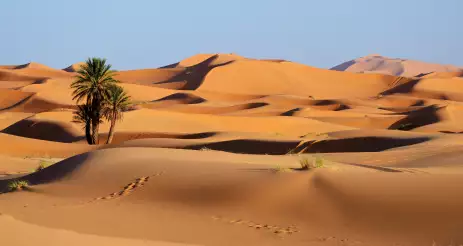
6. Weather and what to pack when travelling to Morocco
Morocco’s climate varies dramatically depending on the region and season. October is particularly pleasant, with warm days and cooler evenings. Coastal areas like Casablanca and Essaouira remain mild, while the Sahara Desert can be scorching during the day and chilly at night. Pack layers to stay comfortable regardless of your itinerary.
If you plan to trek the Atlas Mountains, bring appropriate gear for cooler temperatures and higher elevations. Comfortable, breathable clothing is essential for desert excursions, while a light jacket or shawl can be useful for cooler evenings.
7. Transportation tips for tourists in Morocco
Public transport in Morocco is affordable but can be challenging to navigate. Trains are a reliable option for major cities, while buses and shared taxis connect smaller towns. In cities, consider using apps like Careem or Roby for convenient rides. Renting a car is also an option, but be prepared for unpredictable traffic and adventurous driving styles.
8. Safety tips for travellers in Morocco
While Morocco is generally safe for tourists, petty theft can be an issue in crowded areas. Keep your belongings secure, especially in bustling markets or busy squares. Avoid flashing expensive items and be cautious when exploring unfamiliar areas at night.
Consider using anti-theft backpacks or money belts, especially in tourist-heavy areas. It’s also useful to have a local SIM card to stay connected during your travels.
9. Food and water safety tips when travelling to Morocco
Moroccan cuisine is a highlight of any visit, but it’s wise to take precautions. Stick to bottled water, even in high-end restaurants, and be mindful of street food. Freshly cooked dishes are usually safe, but raw vegetables or unpeeled fruits can sometimes cause stomach discomfort.
Sampling local dishes like tagline, couscous, and pastilla is a must. For those with sensitive stomachs, charcoal tablets or probiotics can be helpful for digestion.
For more information about Morocco's cuisine, read our Guide to Morocco’s Must-Try Foods.
10. Moroccan hospitality
Moroccans are known for their warmth and generosity. If you’re invited to share a meal or have tea, it’s a sign of genuine hospitality. Accepting such an invitation can lead to unforgettable experiences and insights into local life.
Hospitality often includes multiple cups of mint tea, which is seen as a symbol of friendship. Taking time to chat and appreciate the moment is part of the experience.

